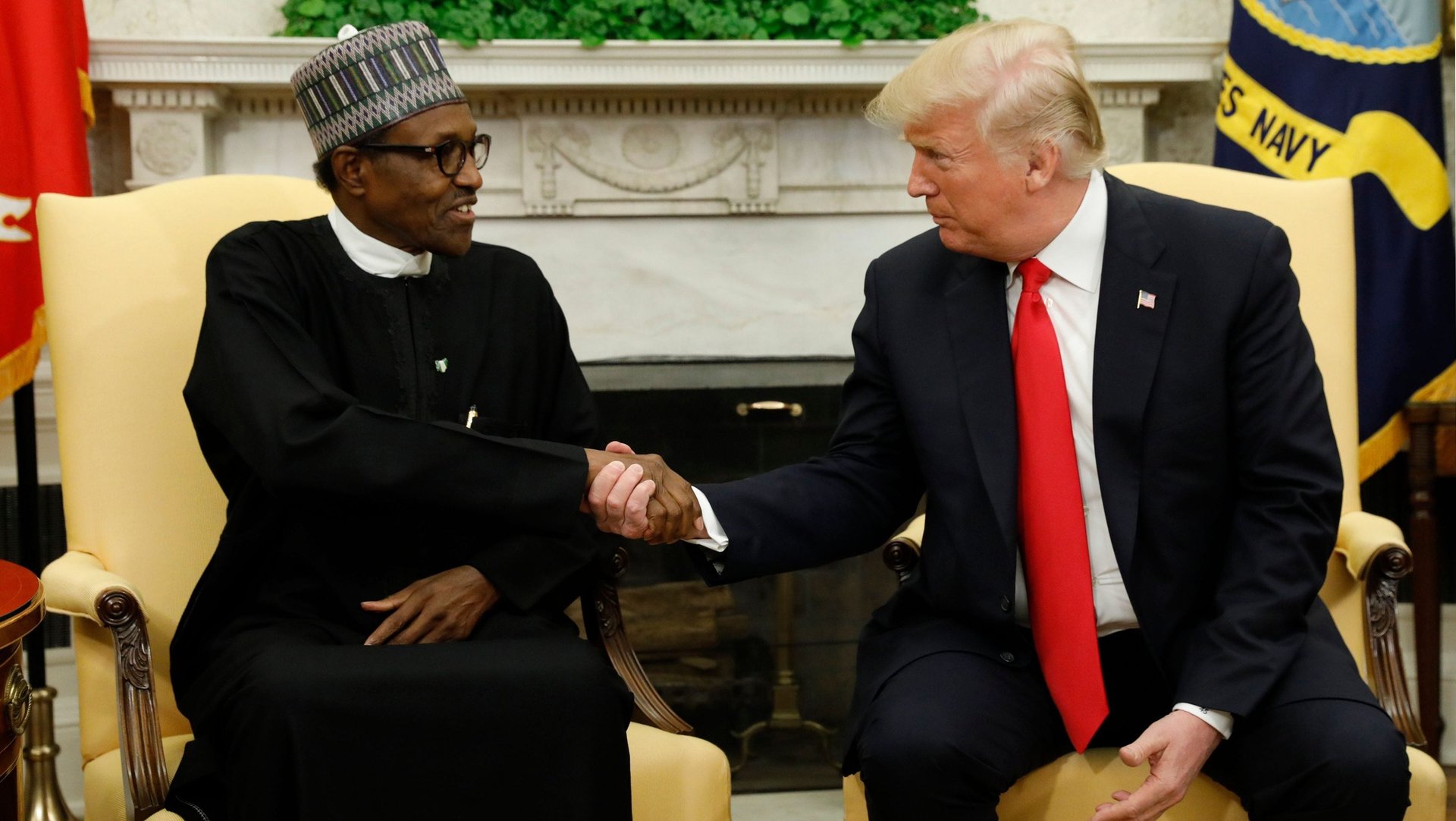Trump used Buhari’s visit to rally his Evangelical base, but stirred Nigerian Christians instead
During a state visit to the United States by Nigerian President Muhammadu Buhari, his host President Donald Trump made a statement that was unexpected and reverberated across Nigeria:


During a state visit to the United States by Nigerian President Muhammadu Buhari, his host President Donald Trump made a statement that was unexpected and reverberated across Nigeria:
“We’ve had very serious problems with Christians who have been murdered, killed in Nigeria. We’re going to be working on that problem… because we can’t allow that to happen.”
President Trump was referring to the frequent clashes between Fulani herdsmen militia and farming communities in Nigeria’s vast Middle Belt region which happen in a tit-for-tat fashion; just last week, 19 parishioners including two priests were shot dead during early morning prayers in a village in Benue state.
Even before that attack, the clashes have been seen, increasingly, as motivated by religion and ethnicity rather than about competition for resources and aided by the weak internal security of the state that it is really about. The church attack at Ayar Mbalom village has deepened the belief, held by many, that this is a religiously-motivated conflict and it looks like that is how president Trump sees it as well.
Trump’s statement will be well-received by many Nigerian Christians who are already huge supporters of Trump; like their Evangelical Christian counterparts in the US, they view Trump as a bulwark against what they feel is the “expansionist ambition” of Islam and fighting violent and extremist Islamists such as Boko Haram, ISIS and al Qaeda
But how does his statement make a difference for those who are caught in the internecine conflict in Nigeria?
It is unclear if beyond this statement there is a defined policy by the United States on how to deal with this perceived problem. The Trump administration does not seem to have any sort of leverage over the Nigerian government to make them tackle the problem; the recently signed $593 million deal for 12 warplanes does not seem to come with concessions regarding the issue or a pledge from the Nigerian government to make sure that the killings stop.
Moreso, the lack of a strategy or cogent effort by the Nigerian government to stop the killings and bring peace to the restive region precludes the US government from being able to assist in a similar way as it did with fighting Boko Haram or even more specifically, finding the abducted Chibok girls. Thus, it bears no real impact on the relationship between the two countries.
But even more worrying, president Trump’s statement will further inflame passions in Nigeria regarding the conflict, with Christians holding on to his statement as justification for what they believe is religious persecution and an attempt to annihilate them and Muslims feeling that the United States is biased due to President Trump’s failure to refer to the many Muslims who have also been killed in attacks in the same region.
This could likely worsen negative attitudes towards the United States which is already bad among northern Muslims due to its pro-Israel stance and Middle Eastern policies.
If there’s any upside to president Trump’s statement it is the very slight possibility that the conflict in Nigeria’s Middle Belt region will now appear on the radar of the international community and the Western media. If that happens, it might exert pressure on the Nigerian government and galvanize it to take action into preventing further attacks and finding the perpetrators of future ones.
Matthew Page, a Chatham House fellow and long-time Nigeria watcher thinks there are strategic reasons for Buhari to pander to Trump less than a year away from an election. “Trump is popular among many Nigerians.”
But as has become usual in these situations Trump probably benefits most Trump’s statement. By using charged language of “protecting Christians” against Islamic terror it bolsters his support with American Evangelical voters as someone who “fights for Christianity” both at home and abroad.
For example, in January 2017, he announced Syrian Christians would receive priority for their refugee status; by July of the same year, data showed that that 12% more Christian refugees were admitted into the United States than Muslim refugees, with the difference reducing slightly to 8% by October 2017.
Such actions and statements carry a lot of weight with a large section of his base and amplify the far-right, anti-Islam message on which he rode to the presidency. His statement on the killing of Nigerian Christians is one of them.
It is sheer populism and will sadly not change anything for the people who are still at risk of losing their lives and properties while their own government watches on as though they were incapable of acting.